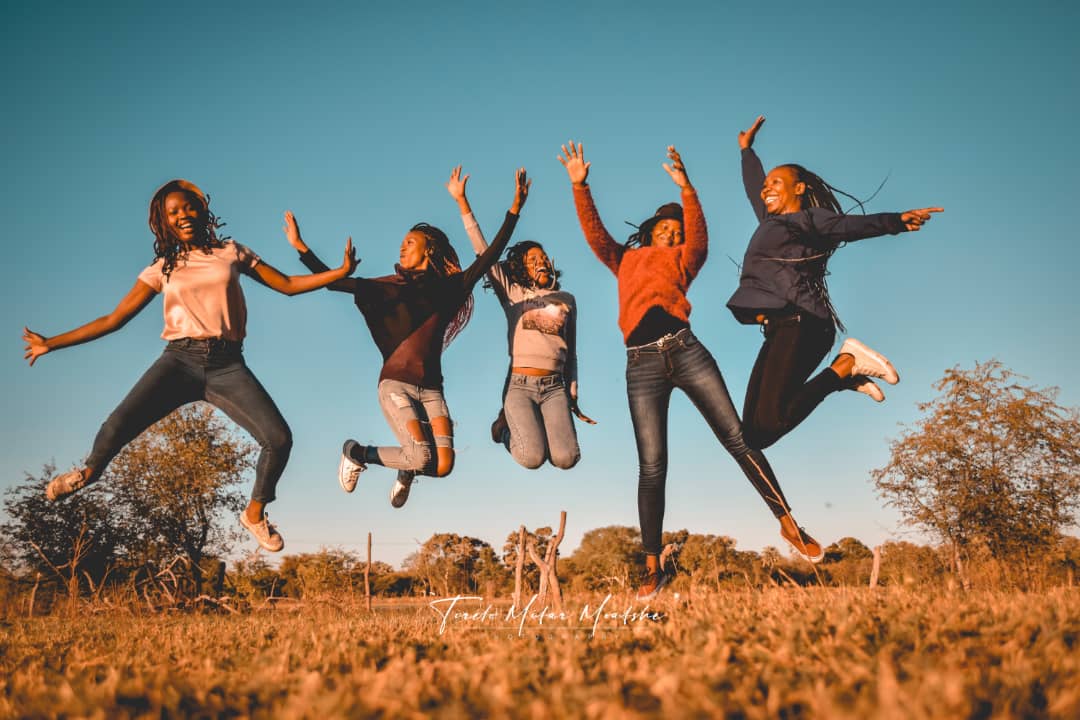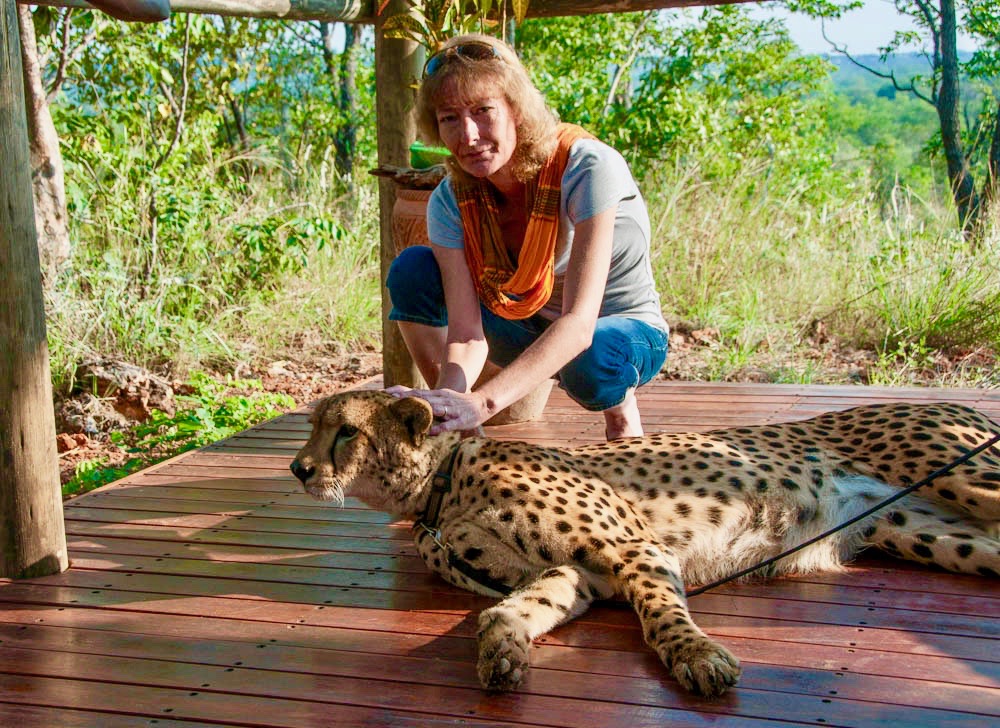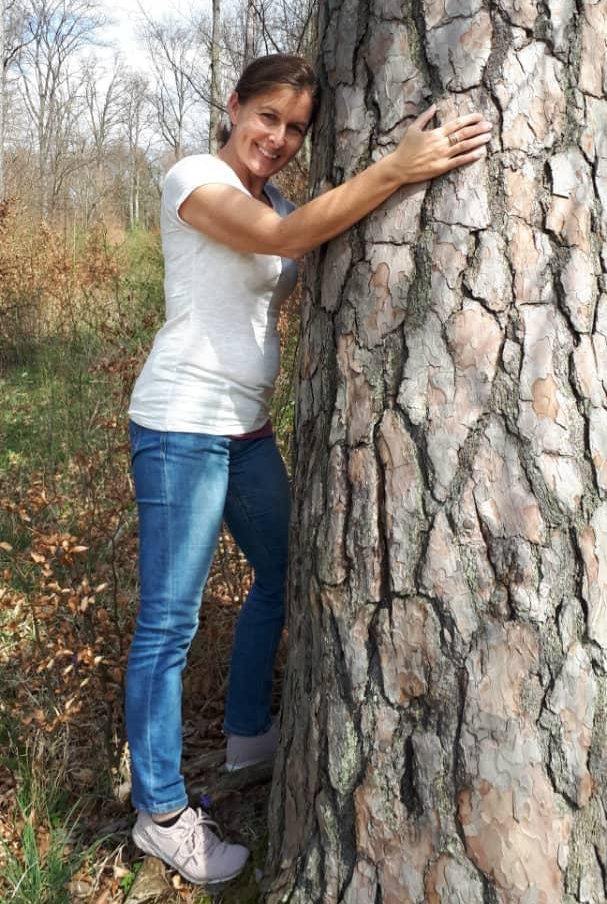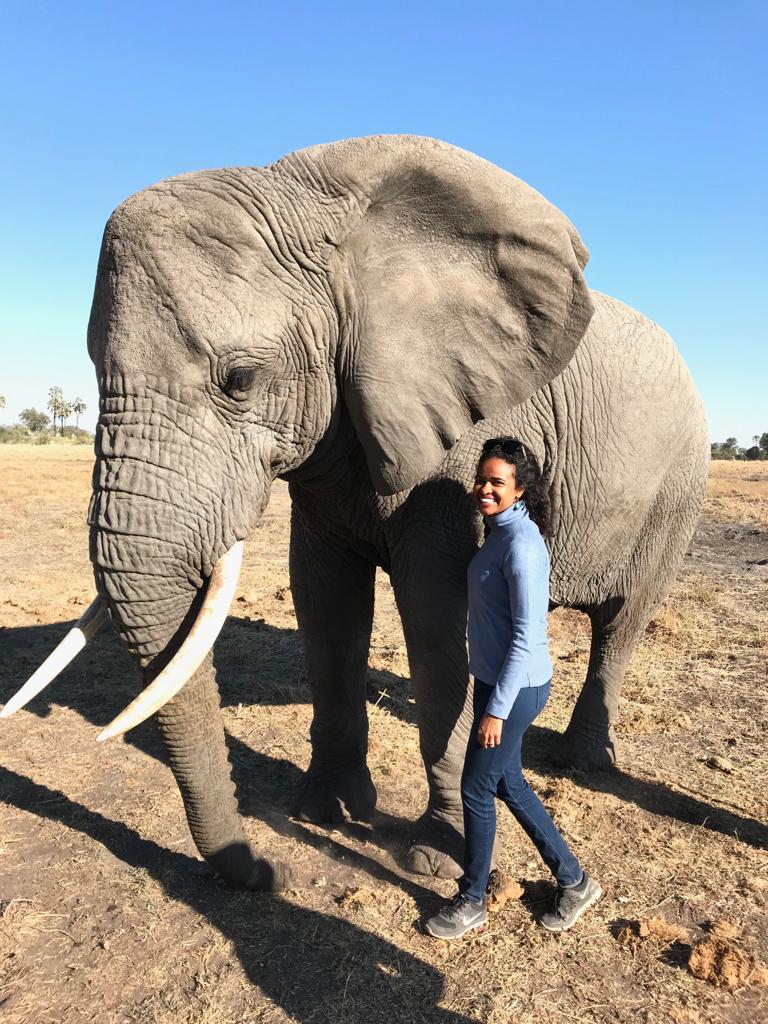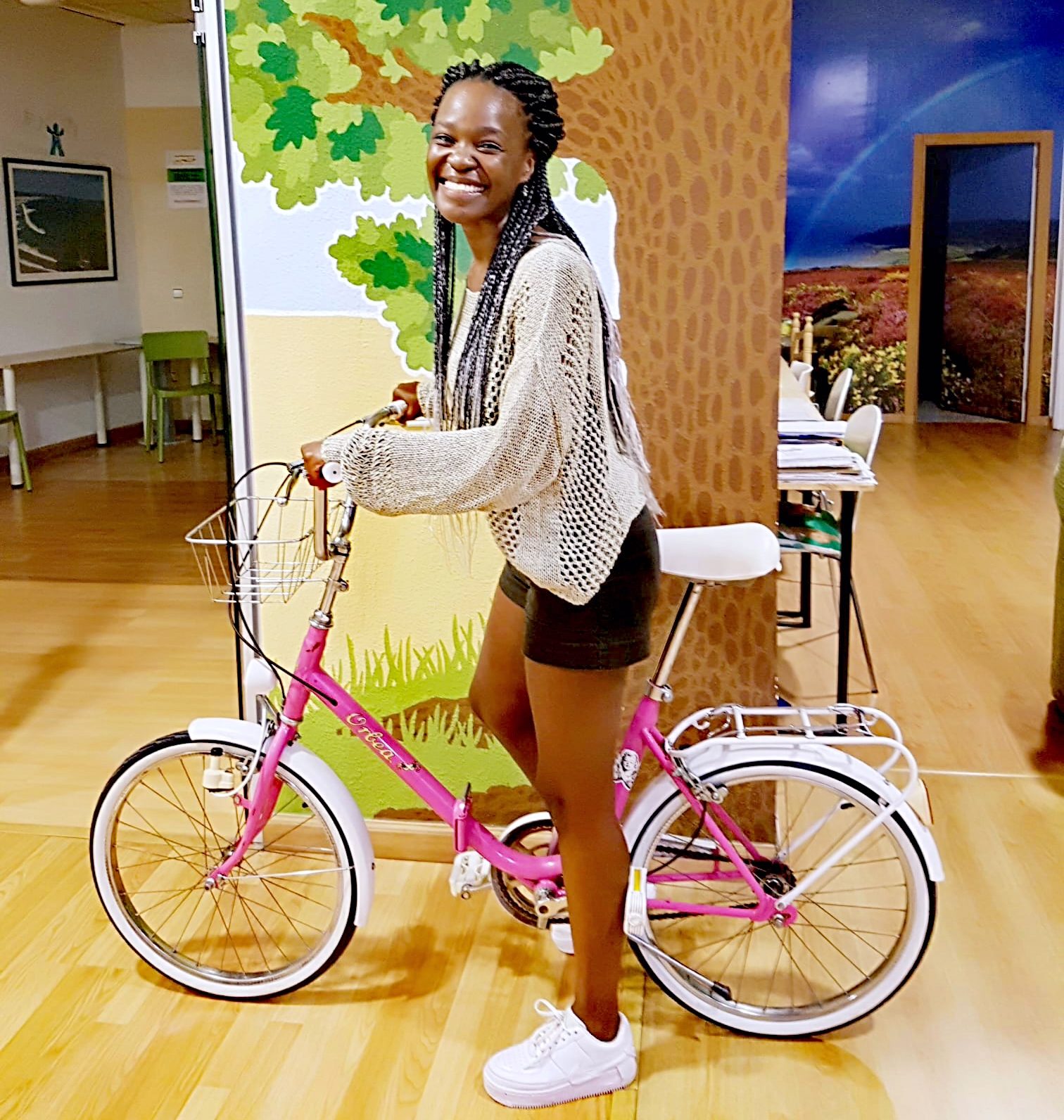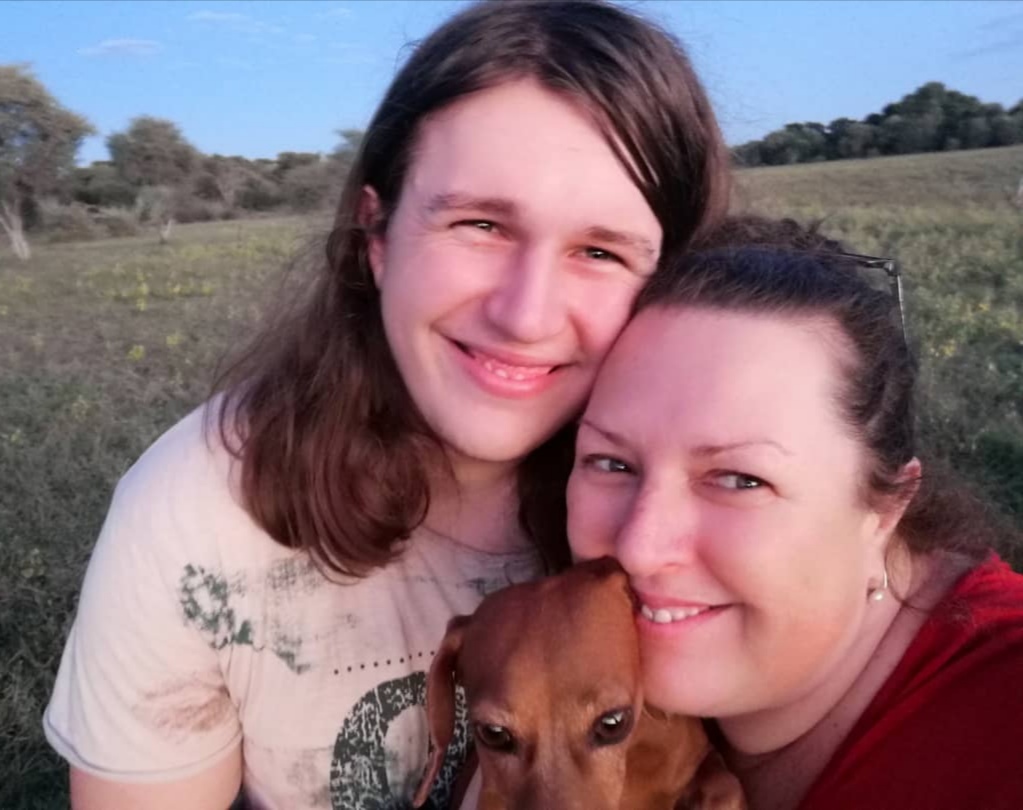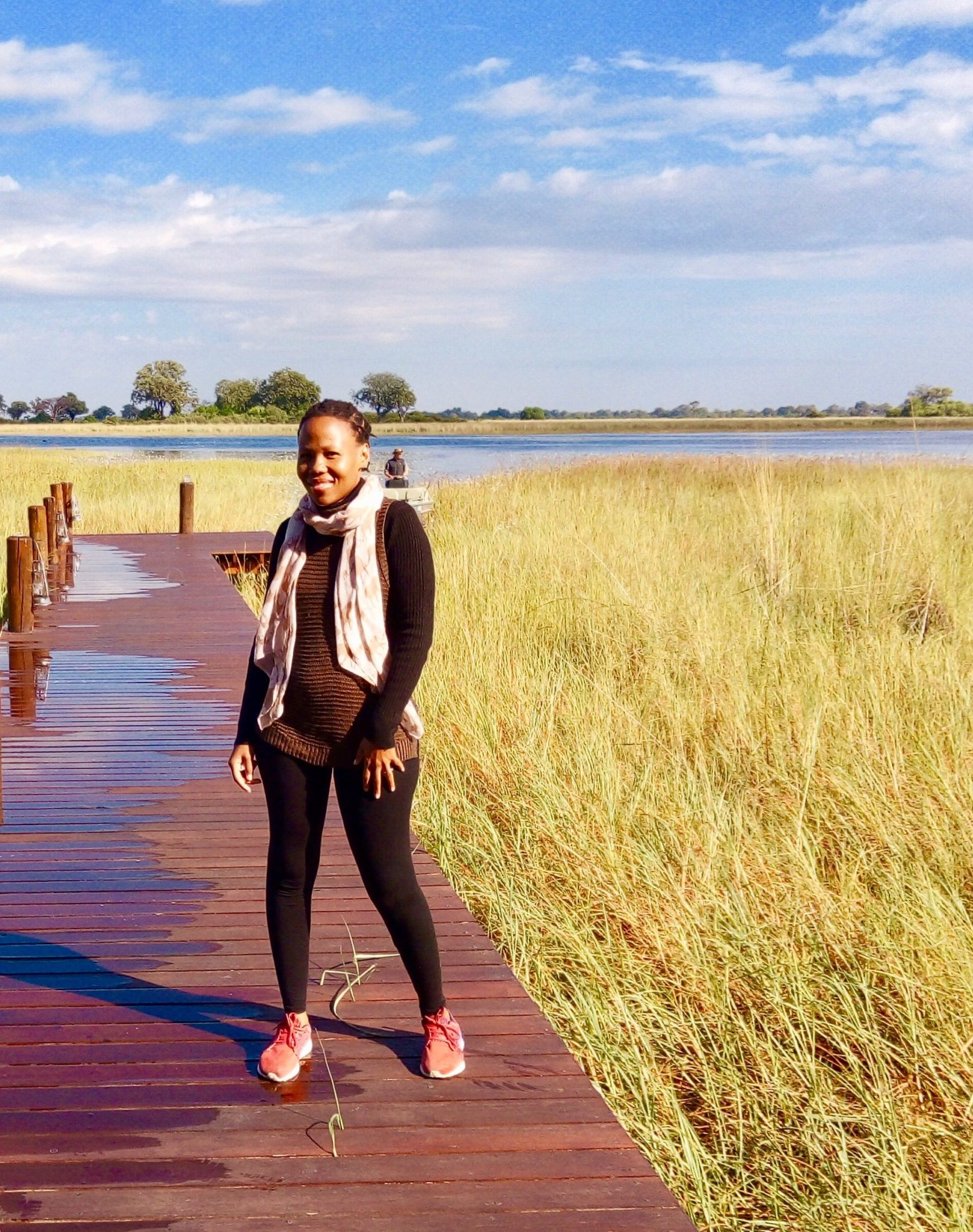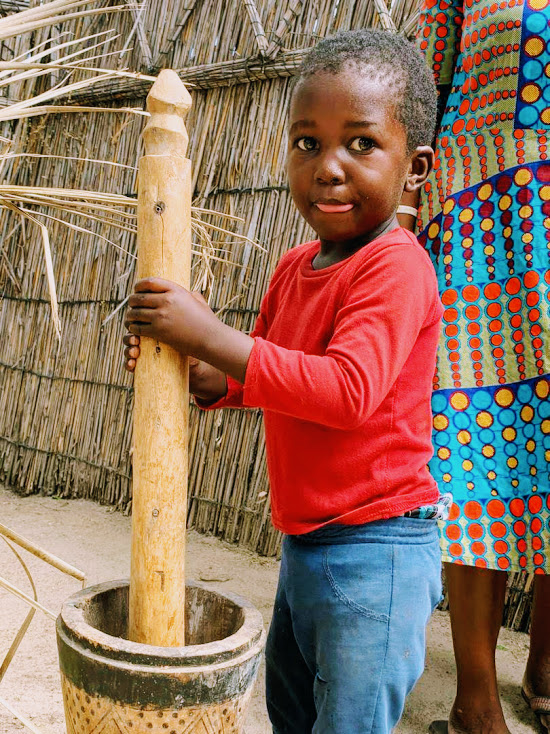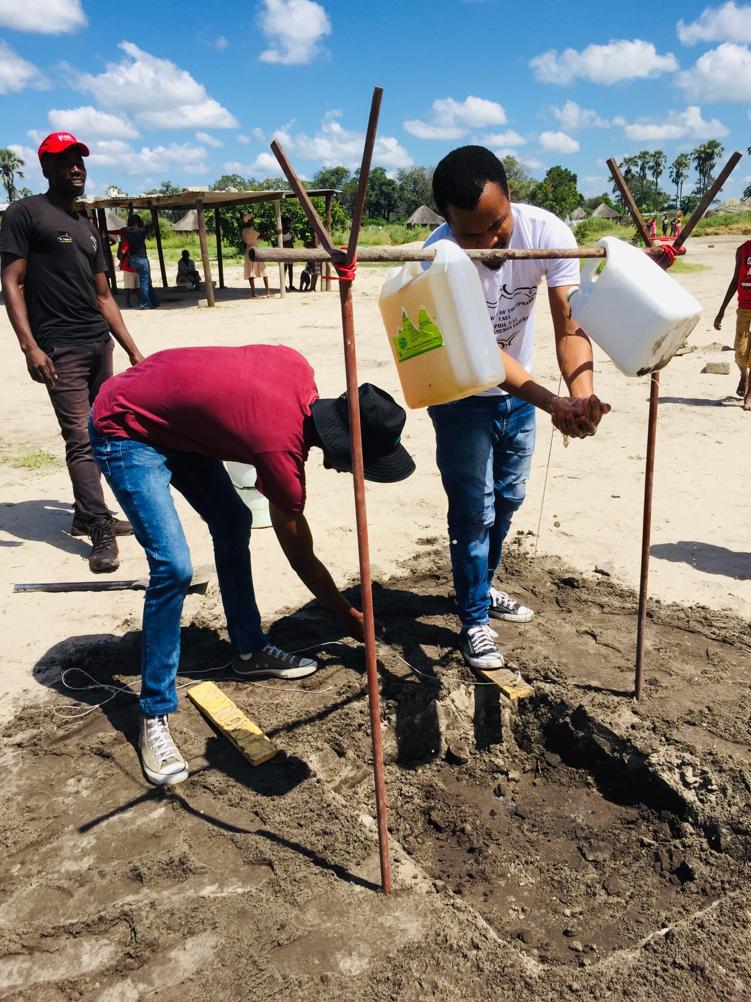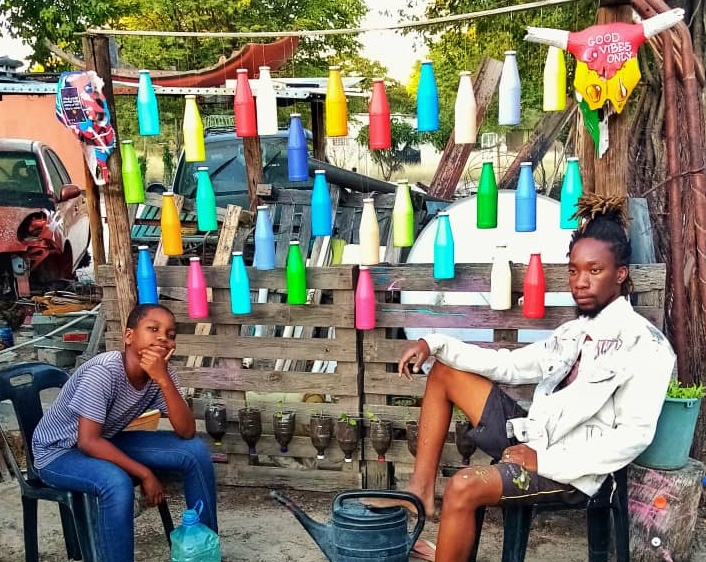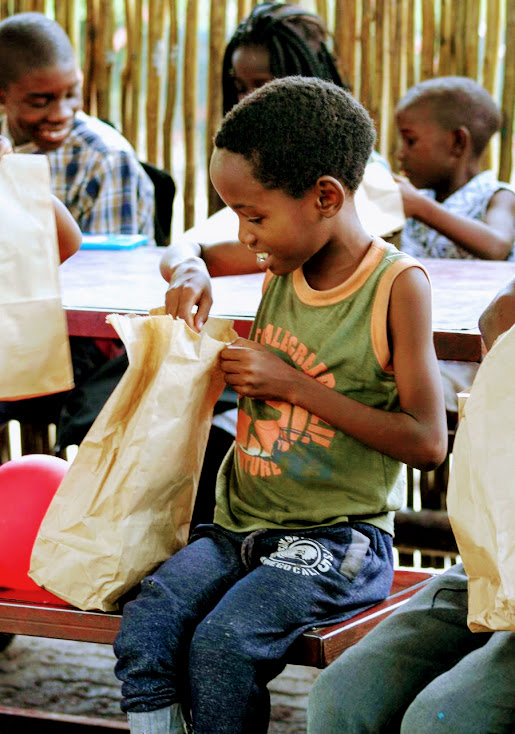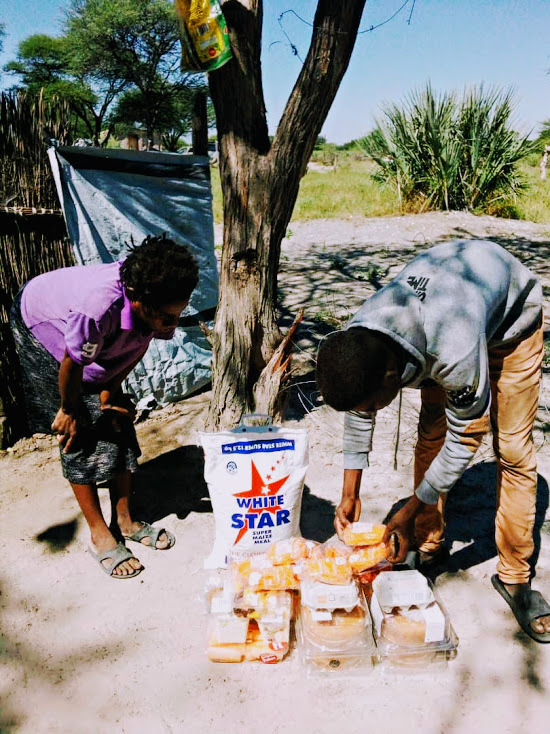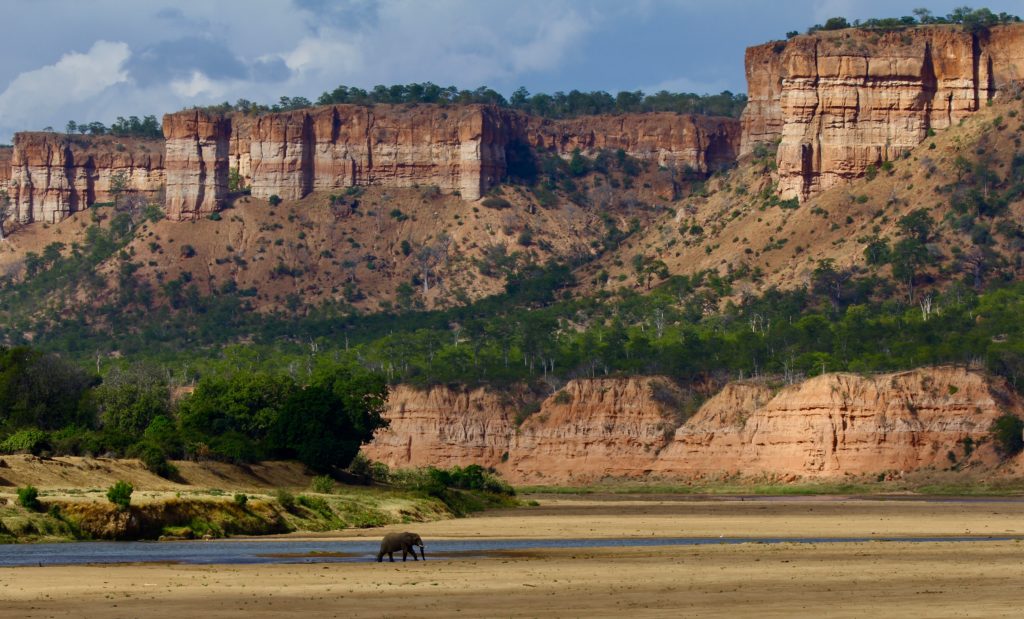The FREEDOM of TRAVEL
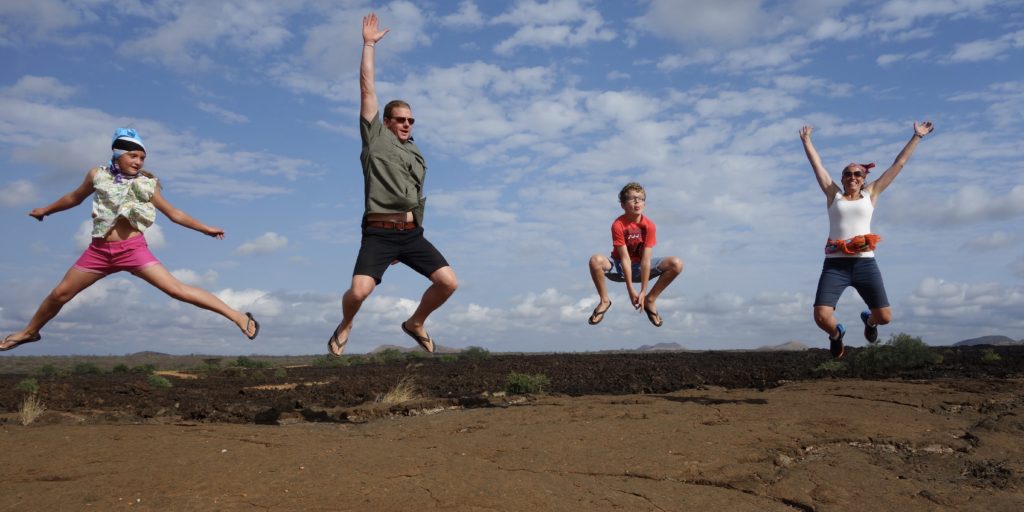
Travelling has always been one of the greatest privileges in my life. I first enjoyed this freedom in school, exchange programs to France and the United States opened my horizon, made me understand other cultures better and caused this urge to travel. I am sure you have heard about the Africa-Virus, funny to call it a virus since the word virus nowadays is directly linked to Covid. Well not long ago having caught the Africa-virus was something positive. Maybe I should call it the need for Africa, the thirst to inhale the smells of the air, the colours of the landscapes, the excitement of watching animals in the wild, I can never get enough of it. The last months have taught me that this FREEDOM to travel and all the positive emotions that come with it, is my key to happiness.
I miss the excitement of planning a trip.
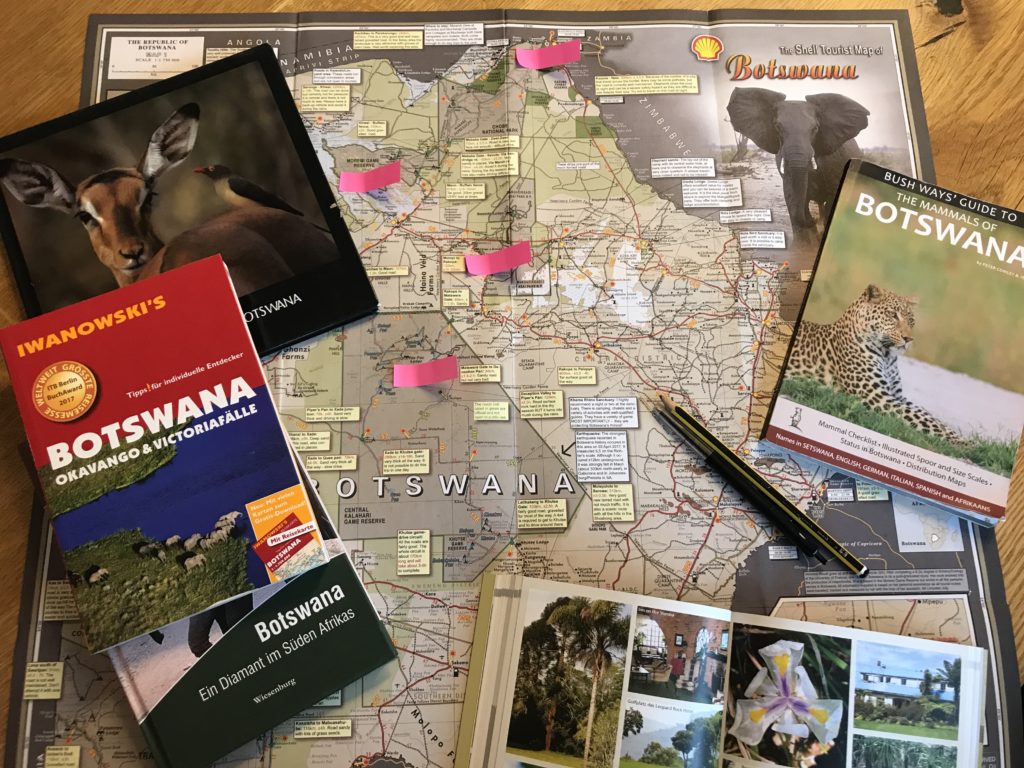
I miss the “Vorfreude”, a German word that perfectly describes the feeling of anticipation, you know something amazing is happening soon and the Vorfreude is almost as good as the trip itself.
I miss exploring new places and learning about other cultures.
I miss the preparation before leaving, the planning that goes into a trip – yes it’s my job but in my personal life I also can’t get enough of studying maps, reading about destinations and dreaming about going to new places.
I miss meeting new people.
I miss having the freedom of choice, the world has become a tiny place. It should be the opposite, by travelling to foreign places we learn how tiny we are in this huge and beautiful world of ours.
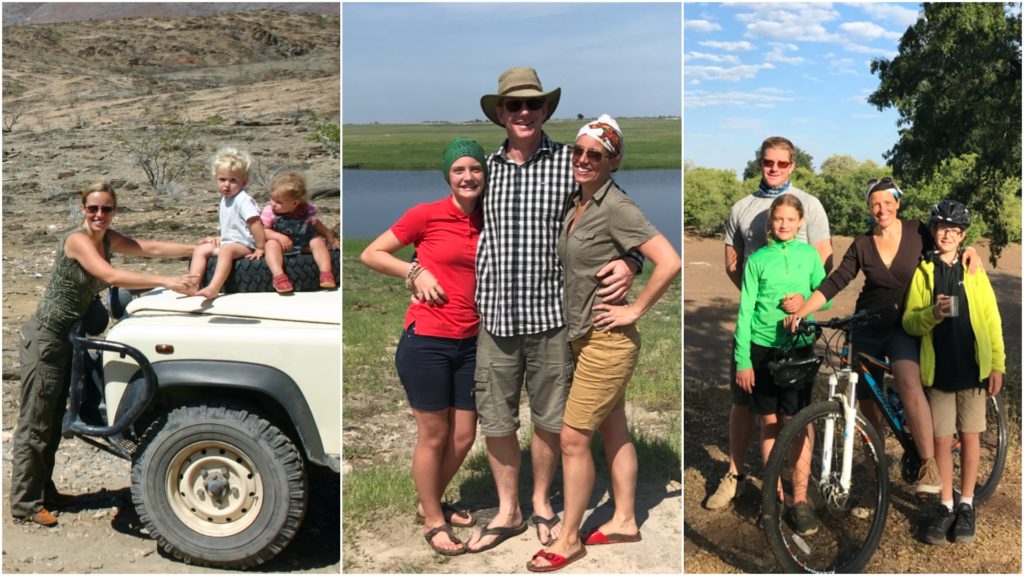
Our most important promise to our children is that we want to create memories for them and not to collect things.
The lack of freedom to travel is taking a toll on many of us. Lets hope that we appreciate the freedom of travel we had lost more once we have regained it. Lets hope that people will be more appreciative and thankful for the great gift of freedom of travel. Lets hope the way of travelling will change, that mass tourism gets less and that people actually want experiences and not just tick off boxes.
Where there are storms, there are clouds
Botswana is known for her incredible skies, huge impressive clouds often build up all day for a short, late afternoon thunderstorm. Not only does this welcome ‘pula’ (the Setswana word for rain in Botswana), the rain also washes the air clear of dust, making for crisp afternoon game-drive photos.
Sunrises and sunsets are especially beautiful as the sky turns gold, pink, red and every colour in between, lighting up the clouds dramatically and creating more spectacular photo opportunities.
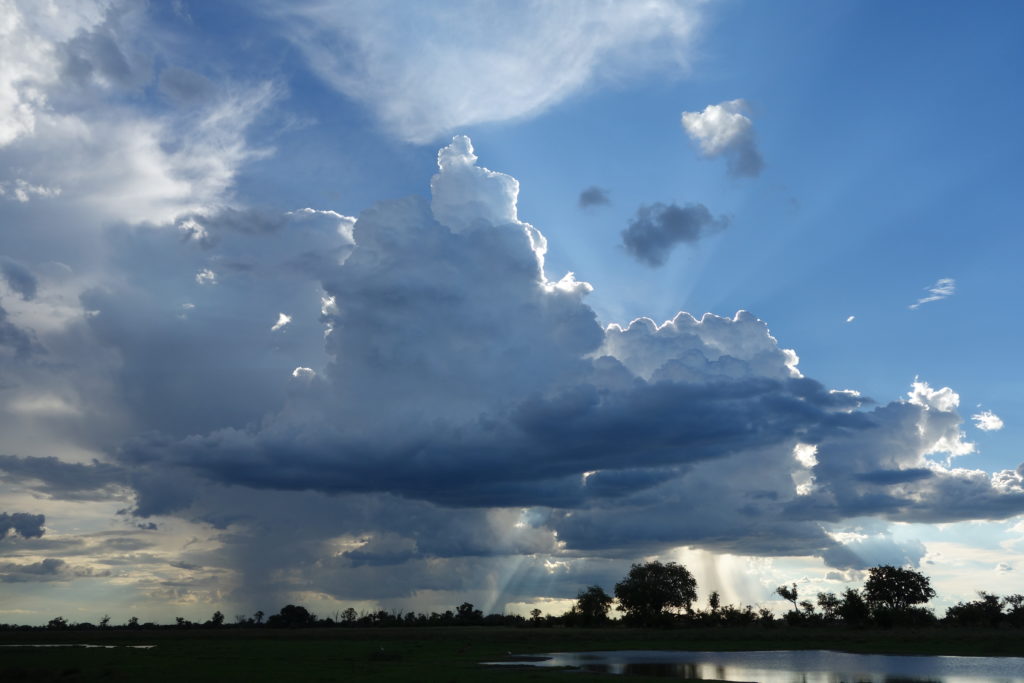
Pula is so precious that our money is named after it (and we also use it as a good fortune toast during drinks with friends). It is so special to us, as it transforms the land into a lush environment, full leafed acacia trees cast deep cool shade and wild flowers start to bloom which makes everything seem more charming. The acres of green grass and verdant leaves, sustain hundreds of thousands of grazers, which sustain thousands of predators. A whole ecosystem depends on pula and, of course, lots of our favourite safari activities like canoeing, boating and mokoro.
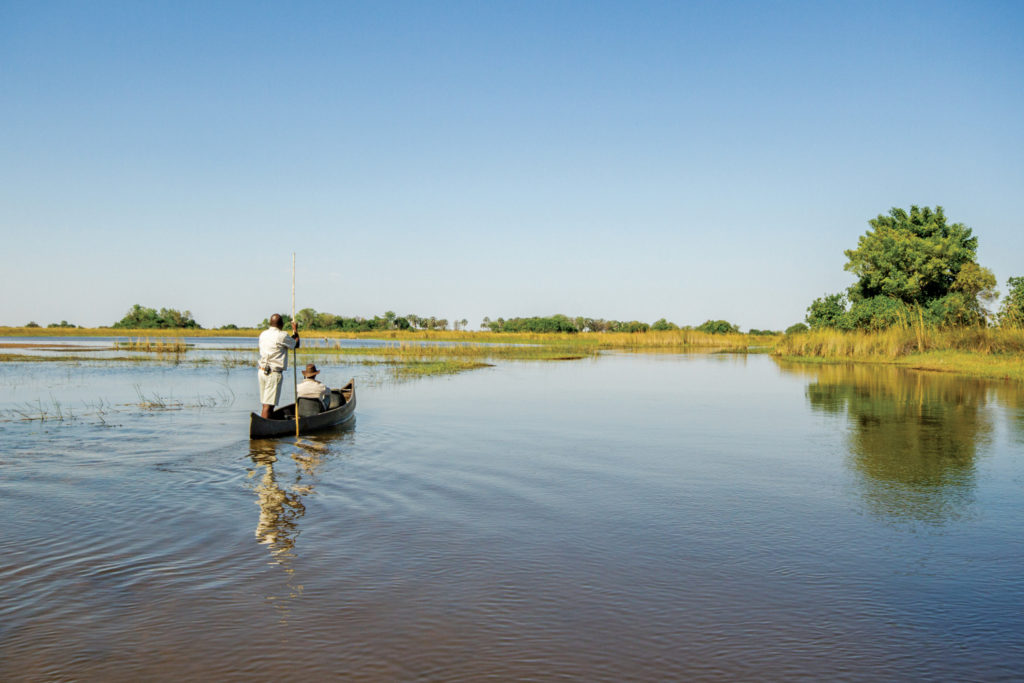
Botswana’s Green Season (starts mid November and ends early April) is one of our favourite times of the year. As the rains arrive so do the migrant birds from Europe, Asia and other parts of Africa. The carmine bee-eaters hovering over game-drive vehicles, waiting to snatch up bugs from the air, are exciting to watch. Kingfishers, kites, rollers and cuckoos embellish the air with extravagant song and colour. They stand out against the brilliant emerald foliage (even LBJs – ‘little brown jobs’ – look prettier). The pans are totally transformed by the magical pula and become havens for aquatic birds like flamingos and pelicans. Everywhere is good for birding – The Okavango Delta, Chobe river, Makgadikgadi Pans, Central Kalahari, and the Linyanti wetlands. Even your non-birders will appreciate the beauty of it all.
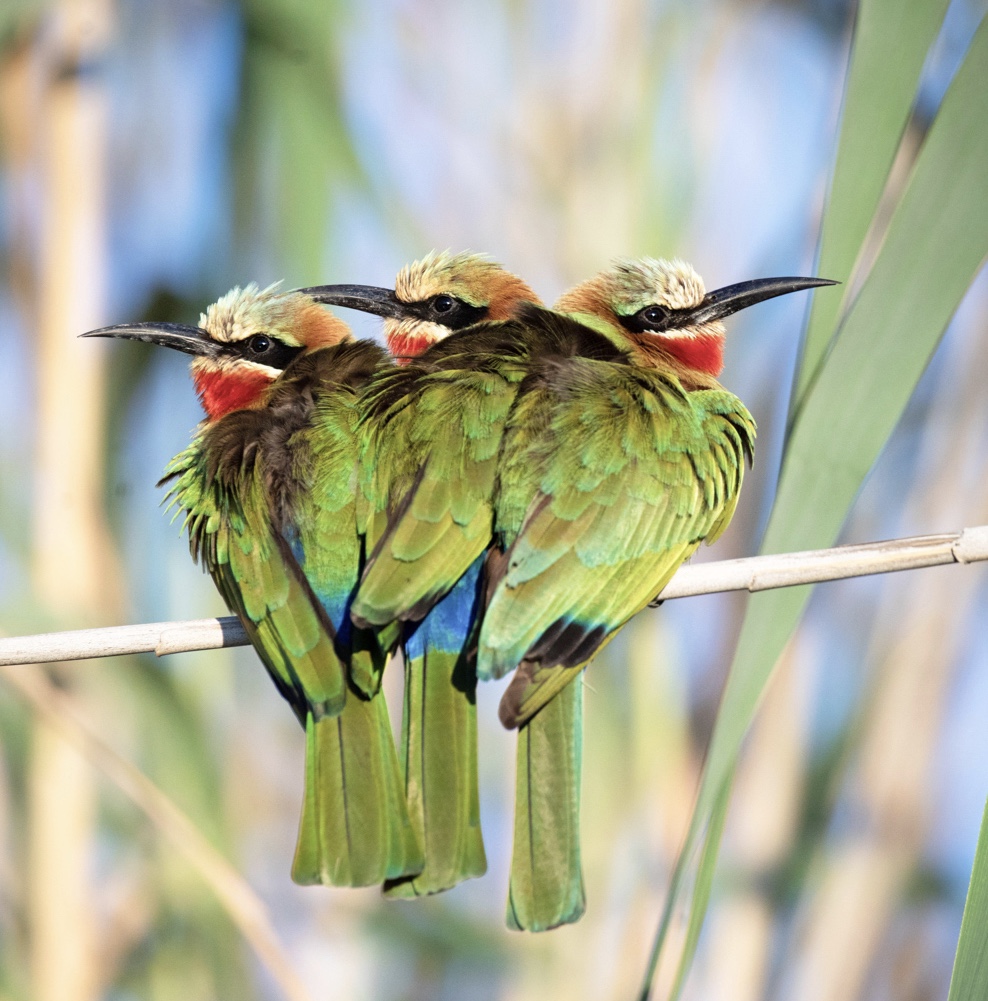
Travelling in the Green Season comes with lower rates than in other times of the year. Guests who have always dreamt of coming to Africa might suddenly find that travelling in the ‘secret season’ is super-affordable. If time is not of essence, you can stay for longer and immerse yourself in the experiences wherever you are, especially with the excellent discounts and specials available to you.
The other unique element of Green Season is that it’s the time year when many baby antelope are born en masse. Species like impala give birth all around the same time to ensure as many of their babies survive as possible – not only is there enough grazing around for all of them but giving predators thousands of options reduce the chances that your specific baby will be killed, if you’re an impala mom. The point is that you’ll get to see wobbly calves and tiny foals, which is very special to witness.

So, whether it’s bright green, dark green, light green or any green in between, the Green Season has plenty to offer. Yes, the longer grass makes animals slightly harder to find but it’s so rewarding when you do. Lower rates, fewer people, happy wildlife and pretty skies – what more do you want in Botswana!
TIP: Visit the Safari Destinations Agents Corner to get a glimpse of the Best In Travel package overviews curated for the green season.
There is a Genet in my roof!
It was a scorching day in November, typical weather for this time of year. I had put my bags down, grabbed a cold bottle of water and headed straight for my deck chair to take in the sweeping views of the Central Kalahari Desert.
The Kalahari was nothing like I thought it would be, except for the heat. That was exactly how I anticipated but one can never fully prepare for it.
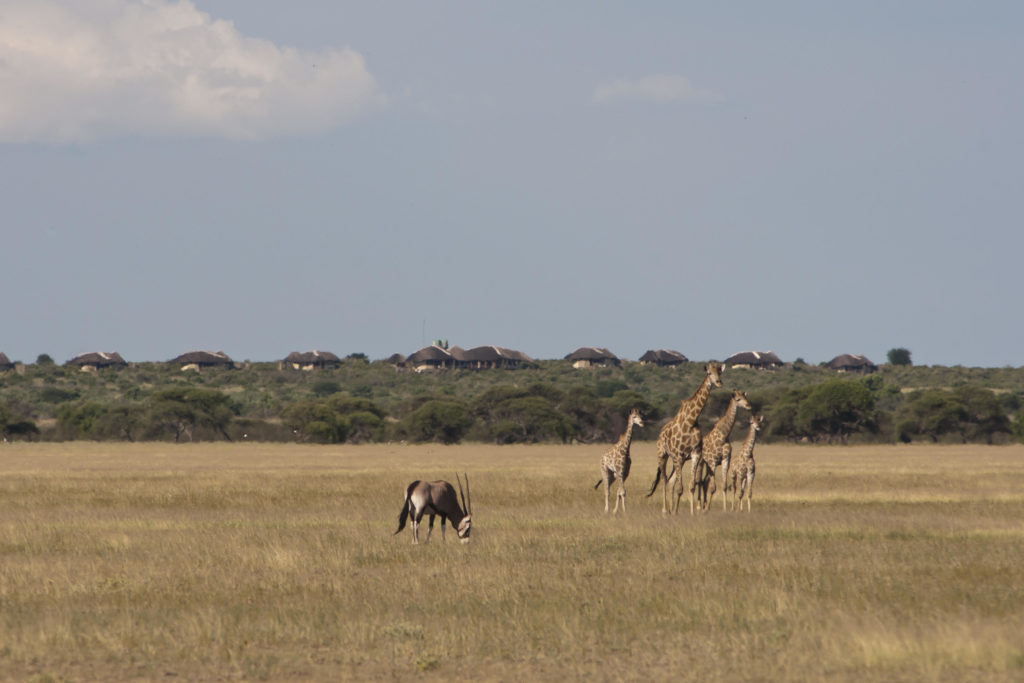
Movement between my tent and the main area was more of a hop, skip and a jump! I had opted to wear open sandals, and these are great on a flat surface, but they sure made for clumsy dance in the red-hot sand.
Standing on the deck outside my tent, I took in the incredible views of the Desert before me. Those who have been to Botswana, know how flat the land is, one can literally see for days! Yet here in the Kalahari; equally as flat, an ancient sand dune exists, and up on this ridge is where Tau Pan Camp is located.
This was to be my temporary home for the next 24 hours and every image I had previously held in my imagination was wiped out by the beauty unfolding before my eyes. The Kalahari is not barren and sandy, as one would expect in most deserts. Even when it is dry enough to ‘qualify’ as a desert, it is not strictly speaking a desert because the ground cover is too dense.
‘Tau’ is the Setswana word for lion and the Kalahari is famed for the impressive compliment of black-maned lions, the very same that frequent the permanent water hole located in front of camp. What I thought was going to be a quiet dreamy night under the stars, turned out to be rather a noisy and interrupted sleep with a choir from the wild; well more like a symphony of roars from one pride to the next that bellowed throughout the night. It was an impressive sound, one that never rings tired with me.
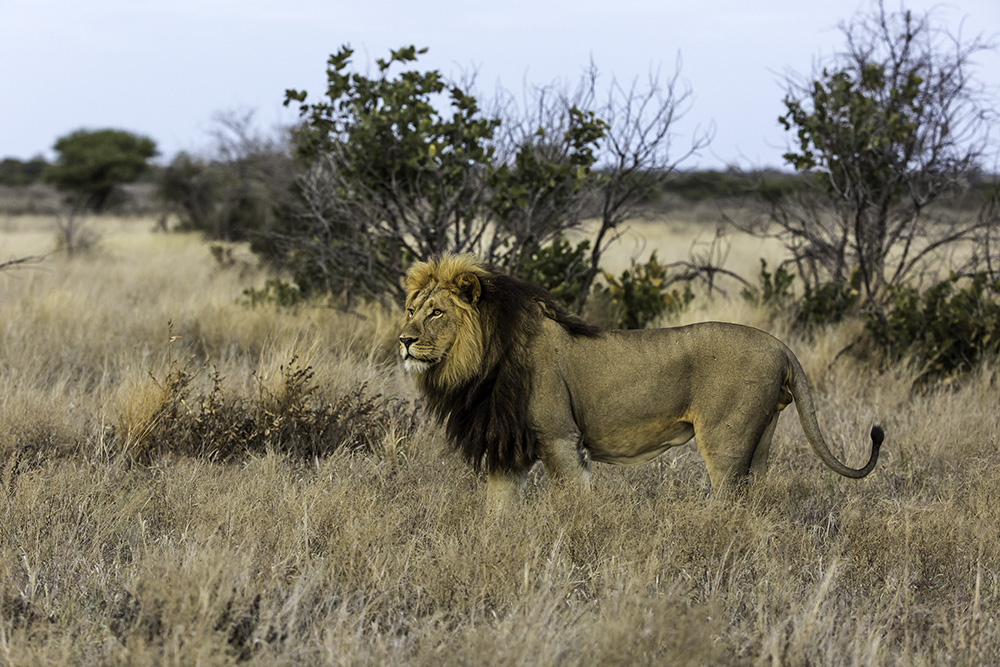
I sat down in my deck chair, dusted the sand from my feet and lifted them up to the small table in front of me. Head back, eyes closed and just about ready to take in my afternoon siesta when something inside me insisted that I look up.
As I opened my eyes, I caught a glimpse of a bushy striped tail hanging from a rafter; and there it was…a beautiful little genet, sleeping peacefully in the shade of the thatch. We both had the same great idea for that hot afternoon in Africa; quiet uninterrupted blissful sleep.
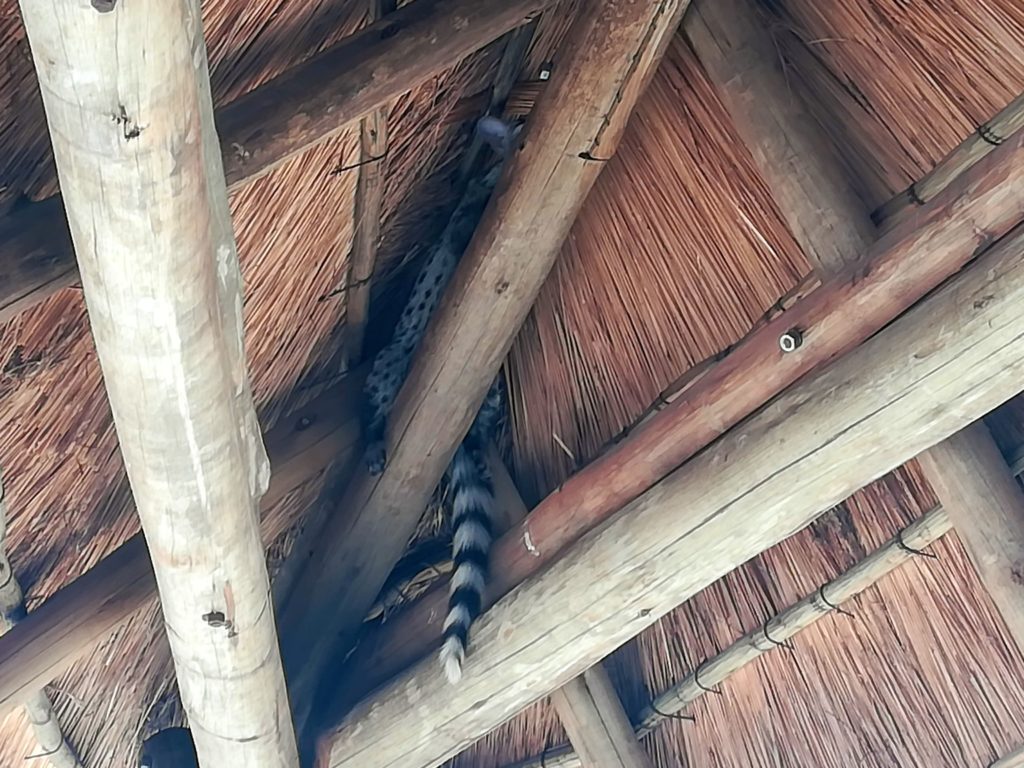
For those wanting to visit the Kalahari, do it on your next planned safari in Botswana. It’s wild and mysterious beauty almost never disappoints!
Interesting facts about the Central Kalahari:
With 52,000 km2 the Central Kalahari Game Reserve is the world‘s second largest protected area and one of the most remote and pristine areas in Africa.
The Central Kalahari Game Reserve is mostly famous for its ancient fossil river beds, which form valleys through the bush of which Deception Valley is the most famous. A highly recommendable read is “The Cry of the Kalahari” by Delia and Mark Owens.
Specialized desert species are found in the Central Kalahari Game Reserve with gemsbok (oryx) and springbok often seen; the famous black-maned Kalahari lions and of course bat-eared foxes. And if you are very lucky, the brown hyena.
Although the Central Kalahari is an all year round destination, an especially magnificent time is during and after the summer rains when the colors of the Kalahari explode and grey turns into fifty shades of green. The rainy starts in mid November and ends in March.
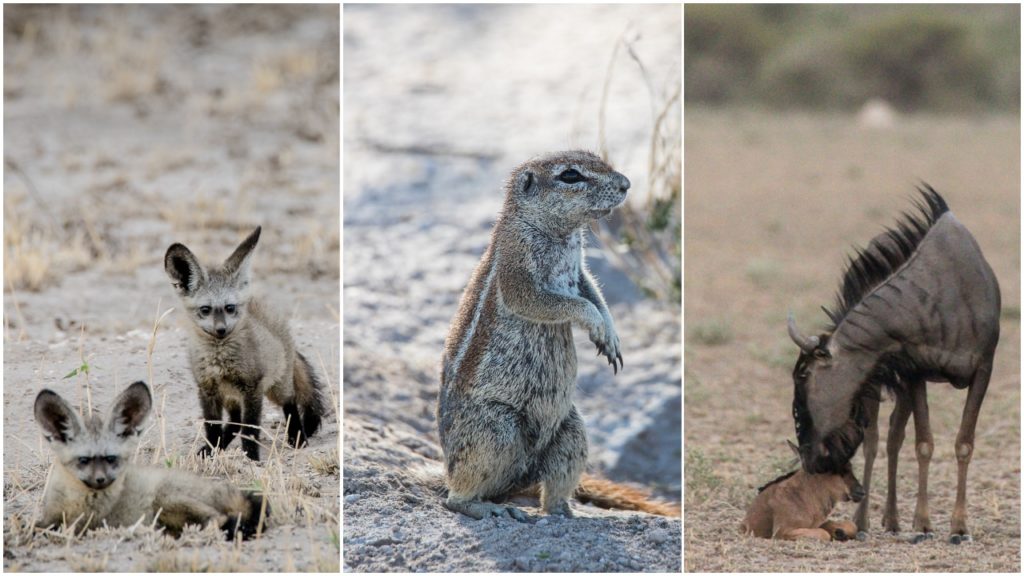
Information on Kwando Tau Pan:
Tau Pan is one of two lodges located within the Central Kalahari Game Reserve, the other being Kalahari Plains.
Activities offered at Tau Pan include game drives, day trips to Deception Valley, Sunday, Piper and Passarge Pans, star gazing and nature walks with Bushman trackers.
Accommodation consists of 9 environment adapted en-suite rooms including 1 family room and a sleepout deck (an absolute treat for the more adventurous!).
100% solar operated
All-inclusive rates
Guide and tracker team
ONLY HAPPY THOUGHTS AND POSITIVE VIBES!
For us at Safari Destinations we are striving and pushing through no matter how hard and bleak things may seem. We know that soon we will look back and pat ourselves on the back and say we’ve done well…
August was dedicated to the “Women In Tourism” who have brought us so much inspiration. As we saw women coming together being the matriarchs of our societies, taking the lead and being the magic that the world needs right now and giving us hope to work harder and to stay positive.
SD ladies never lurk behind… Carina and Lorraine have taken the reigns and together they are showing us their passion for travel. Not only are they fighting for Safari Destinations they are also fighting for the travel industry in our country. They are leading by example like many other Women In Travel, who are strong, resilient and BOLD.
True success is built on relationships. SD is proud to be the professional home of many strong women who show endless dedication, they never give up and they always keep their spirits alive:
Ursula (Zimbabwe Office) says: “Gosh, how things have changed! Looking back, I’m amazed at what we’ve achieved on every level, looking forward, I’m as uncertain as the next person. What I do know is that the Falls will continue to flow, and as long as it does and I have breath in my body, I’ll remain an advocate for all who wish to travel here. I’ve learnt a few things too… more patience for sure, to be kinder to myself and to actively seek the positive, no matter how small – over negative. I still need to work on that patience but I literally just can’t wait to welcome our first post-pandemic guests back!”
Andrea (Reservations Department) says: Strolling through European forests for a change is incredibly relaxing; I can just walk – without trying to figure out who broke the branch in a distance and will jump out from behind a bush any moment; I have learnt to appreciate these “low adrenalin” walks, where your eyes and mind can wander and wonder.
Julia (Marketing Department) says: “The last few months have been extraordinary in many forms, this has brought challenges, uncertainty, hope, all of which we are experiencing in one form or another. This has made me realise that we are more resilient than we ever imagined, I have learnt to be more patient and most of all I have learnt to be GRATEFUL! Grateful for the beautiful spaces we get to spend our free times in, Grateful for the loving family and friends that we have. Grateful for the what the future has ahead of us and much much more“
Tebby (Reservations Department) says: “Breath and repine less…to help with my sanity amidst this pandemic I started doing yoga with my baby boy. This has helped me replace stress with peace for my soul.”
Caroline (Marketing Department) says: “I have learned to do things that I wouldn’t normally do…I now do yoga and I have found peace, happiness and serenity on my yoga mat and cycling early in the morning. These two things have given me comfort and some emotional freedom”.
Sarah (HR department) says: “Family which includes our dogs and cats, have been an important part of remaining grounded and sane during corona madness. Our three sausage dogs love a walk along the riverbank. With the flood having reached our doors, this is a favourite activity for all concerned.”
Keneilwe (Reservations department) says: “During these unusual times , I have learnt to appreciate my family and friends, being in lockdown and not being able to see those closest to me made me appreciate the moments we spent together as it’s more apparent that nothing in life is guaranteed”.
Carina says: “I have always known that working in tourism means living my dream. Nothing else has fascinated me more than exploring new places, working with like-minded, open-minded and energizing people. In tourism women can achieve the most amazing things. Tourism is full of strong women that started with only an idea and with their passion, hard work and drive they achieved more than they would have ever imagined. These women are often too shy to be proud of their achievements. Especially in difficult times like these we should be more generous with ourselves and give us the credit we deserve for pulling through, for not giving up. Soon we will be looking back with a big smile on our face knowing that no matter how big the hurdle is we can overcome it and the challenge will have only made us STRONGER.
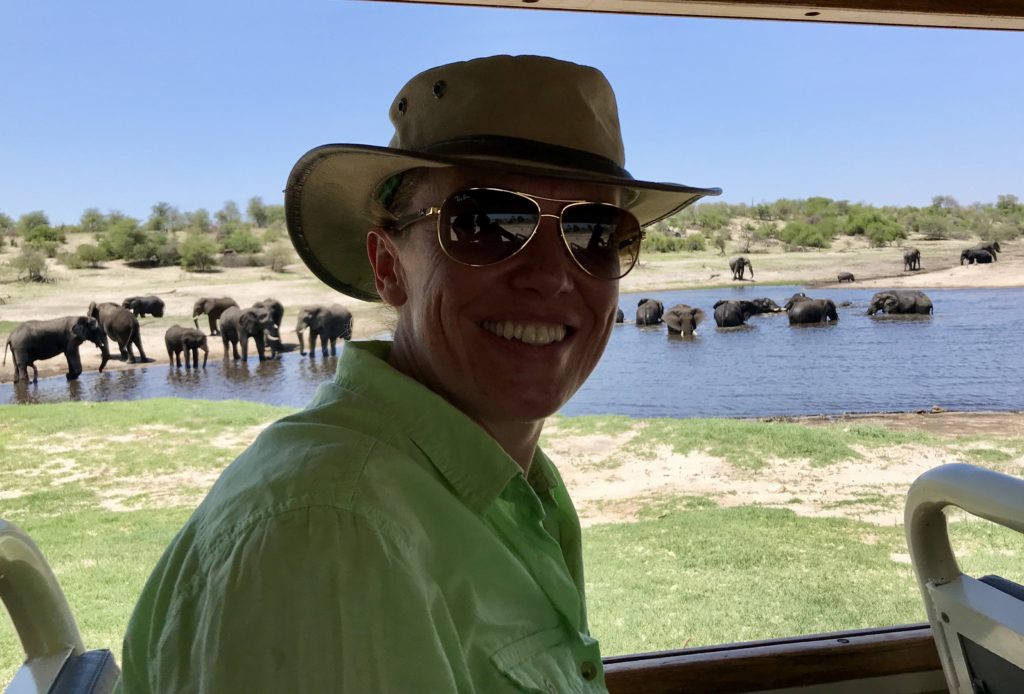
Hwange: A special place in all ways
Be prepared for the safari of a lifetime. Hwange is an amazing destination due to its diversity of landscapes, experiences and activities. There is, however, one constant throughout: the superior guiding standards! Zim is known for its phenomenal and, dare I say, legendary guiding. This is brought about by some of the strictest and most vigorous guide training in Africa.

It takes years of training, dedication and (financial) investment before one qualifies as a professional guide in Zimbabwe, which guarantees you guides who are passionate about what they do. You’ll be hard pressed to find a question they can’t answer or a topic they aren’t willing to discuss – I know because I tried on my last Hwange safari…
These professional guides also offer a most welcome alternative to the usual game drive activities in the form of walking safaris, which are an absolute highlight when visiting Hwange. Many lodges have a professional walking guide in camp to offer exactly that and it needs to be experienced to be believed: there really is no better way to experience the bush then up close and personal in the trusted, experienced hands of your (armed) walking guide. Before embarking on a walking safari, they ask what type of walk you’d like: big game encounters, interpretive walks or exercise walks but most often it’s a combination of all three catered to clients’ wishes. No matter what landscape or which habitat you’re walking through – be it the teak forests, open grasslands or granite kopjies (hillocks) abundant in Hwange – your guide will make sure you feel safe at all times while learning so much about the environment you’re in.

Hwange is not only ideal for walking it also excels in offering a different perspective on game viewing: from ground level looking up at elephants drinking metres away from the safe surrounds of an underground hide. Hwange has close to 50 000 elephants and, especially in dry times, they dominate the waterholes (when not slurping from the lodges’ swimming pools), making game viewing and photography from an underground hide an experience not easily forgotten.

As if superb guides, walking and underground hides aren’t enough, Hwange also offers horseback safaris both inside and outside the park, thereby combining big-game viewing with an immersion in the incredibly rich Zimbabwean culture found in villages and settlements.

Another reason to spend time in Hwange is its ease of access; whether coming from Victoria Falls (by road transfer or short flight) or from Botswana, Hwange is an ideal safari destination. A little hidden gem is the Pandamatenga border crossing connecting Zimbabwe and Botswana. This is the closest border post to Hwange National Park and an absolute pleasure to experience. Officials on both sides of the border are super-efficient, very friendly and, best of all there are no queues, so you’re in and out in five minutes! Once through immigration, the game viewing starts the moment your visa has been stamped in your passport due to the adjoining game management area that lies on the northern boundary of the park. Our Best in Travel in Zimbabwe offers plenty of itineraries that include Hwange. Here is an example which travels via the above mentioned Pandamatenga border post: 12N Zambia – Zimbabwe – Botswana Safaris (also ideal for family travel).
Most suppliers have already confirmed to freeze their 2020 rates for 2021. Contact your Safari Destinations consultant for more information.
The Importance of Tourism for Communities in Botswana
There is something our parents always told us that as kids we probably ignored: You don’t realise how important something is, until you lose it.
It is well known that tourism is a critical economic development option in many countries, bringing in much needed foreign revenue. In Botswana tourism is even more important where it has been one of Botswana’s key economic sectors, contributing greatly to government revenue and boosting important macro businesses.
The mighty Okavango Delta and nearby areas such as Maun, Moremi, Savuti and Chobe attract thousands of visitors annually from all over the world. Tourism supporting the communities in these areas through employment and community development and where the payment of government taxes has allowed for the provision of free schooling and health facilities.
Tourism is not just about the big destinations and properties, or the transport and flight companies. It is also about the intricate web of small businesses and entrepreneurs providing travel booking services, day trips, guiding or poling experiences as well as the many businesses that contribute indirectly to the guest experience from providing well-built and maintained safari vehicles to growing and delivering the ingredients for a delicious meal. There are the many community trusts with stakes in concessions with campsites or lodges, all part of Botswana’s strategy of sustainable tourism.
However, at this point in time, not only has the regular and very welcome support of the local travel industry stopped, but international support has also waned, as the Covid pandemic wreaks havoc with economies and peoples’ lives. Without any warning, suddenly there are no travellers and therefore no income impacting thousands of people who may have no work, no or reduced salaries and therefore no or limited means of supporting themselves or their families. This is worsened by the fact that there is no way of knowing when the industry will start to recover.
The Botswana people have a culture of coming together to resolve and face challenges head on, and this time is no different. In the midst of these chaotic and troubling times, we are proudly watching NGOs take the lead in communities to ensure that the most vulnerable are taken care of. Safari Destinations’ own community liaison co-ordinator, Tara Theron, has been working closely with these NGOs to see how we can support them, now and in the months to come. The Government, with the support of the private sector, is going all out to support and assist in a variety of ways. One of these important initiatives is to ensure that everyone has food. We are Proudly Batswana, and are thankful to see the great spirit of BOTHO being ever present. We will continue to bring you reports of what is happening on the ground.
One of the other sayings my parents would regularly say in my childhood when things were tough or something bad happened: Every cloud has a silver lining. While 2019 was a year of drought for Botswana with poor floods for the Okavango Delta, it was a good year for the landscape of the Delta allowing land usually under water to provide more grasslands for antelope herds, more grass means bigger herds. And now in 2020, we are seeing one of the best years yet for the beautiful Okavango Delta in terms of the spectacular flooding of the Delta. The way nature has rebounded teaches us valuable lessons in recovery and hope. We hope you will come and share this wilderness with us soon.
Please don’t cancel your dream-safari. Postpone. Help us protect Tourism, and by doing so, you are positively impacting thousands of lives.
Bana Ba Letsatsi, Maun
Mombo – More than just a name
Some know Mombo as the “Place of Plenty”. Others refer to it as Mma Di Campo (“The Mother of all Camps”). With its considerable nightly rate and renowned reputation for sensational wildlife sightings, those who are fortunate enough to stay at this beautiful place cannot be blamed for having very high expectations.
Along with the name and the reputation come a significant amount of excitement. Like the flutters you get before meeting your favourite star or the thrill of seeing the top of Kilimanjaro towering over the Serengeti for the first time.
Land at the Mombo Airstrip and instantly this buzz rushes through you. Guides come bounding across to welcome you and helicopters are on standby to take you anywhere, any time.

So, here you are, you’ve finally arrived at the famous Mombo Concession and your guide takes you on the short 20-minute journey to the lodge. As if they’ve come to welcome you, the track is full of life. Impalas line the road with their young calves leaping through the grass. Geese, ducks, sandpipers and colourful bee-eaters flock the small pans along the road and the characteristic shrill call of the stunning turquoise woodlands kingfisher welcomes us. We’ve arrived in mid-February, the middle of the Green Season, a time when the bush is full of colour and new life.
We’ve arrived at the lodge and the staff’s smiles await you along with the eagerness to make this time at Mombo your most memorable. Sitting down for lunch, we’re treated to crisp baby vegetables and lightly grilled Chobe bream. The “new” Mombo is around two years old and meticulously maintained. When you start to look around, the touches of comfort and elegance are all over, from the motion-sensor lights in your massive room to the carefully packed sachets of Fairtrade ground coffee and bottles of vintage wine in your private lounge. We could tell you about the USD12 000 worth of complimentary Olympus mirrorless camera gear you are free to use, the refreshing private pool, day-bed and more of the delectable meals and snacks we were treated to during our stay but what we really couldn’t wait for was to set out and explore what this famous concession in the heart of the Okavango Delta would deliver. Because, let’s be honest, there are beautiful properties all over Africa… the reason people come to Mombo is for a safari experience to beat all safari experiences.

Well, 48 hours later, and we were completely and utterly blown away by what we had witnessed.
On our first afternoon drive with Moss we headed out to where the breakaway pride had been relaxing the morning before. Sure enough, we rolled up to within breathing distance of them. A perfect place to take in some shade from the hot afternoon sun and start learning about the dynamics of the resident and roaming lions of Mombo.
About 20 minutes later, the distinctive continued shrieking of the red-billed spurfowl alerted the guide to what was most likely another predator. Just 150 metres from the relaxed pride of seven lion was a massive male leopard. Moss called this striking male leopard Sergeant and one couldn’t help noticing how passionate he was in sharing the excitement with his guests. His eyes were fixed on the animal as he shared the years of how he has watched this individual through his challenges and triumphs existing in this predator-rich landscape. Sergeant is reaching the end of his dominance and you can see he has been through a lot as he panted hard in the afternoon heat.
As we made our way along the marshy plains it started to become evident. It’s not just the animals or the thrilling sightings we were being treated to, it’s the sheer beauty of the area, which is unlike anything we’ve seen. It’s Africa as you imagine it. Some of Botswana’s largest baobab trees look as though they’ve been placed there deliberately. You’ll find yourself alongside rolling floodplains where carmine bee-eaters swoop by the vehicle and then into dense forests with old gnarly jackelberry trees. It truly is a breathtakingly beautiful African wilderness.
Nothing could have prepared us for the treat we were in for the next morning. We told Moss we would be ready to set off nice and early to make the most of our time out there. And if you don’t want to miss out on the fresh cappuccino and scrumptious handmade toasted sandwiches cooked on the fire… do not fear, they will wrap it up for you for your breakfast on the go.
We headed towards an area called Tsessebe Plains to find the Mathatha pride. We found them and they were on the move. It was clear where they were headed. The buffalo herd of around 400 animals or more was not far away. Lions are never far away from a big herd of buffalo.
Once again, we were staggered by how quickly we encountered the next predator. A majestic male cheetah was watching these lions with a clear amount of distress. It was the flick of its tail Moss spotted across the grassland. When we got closer, we were treated to rich golden morning light as we followed this cheetah from termite mound to termite mound, posing for us.

Fifteen minutes later, after being spoilt with photographs of this cheetah, we ventured to the thickets where the impalas alarm calls were causing panic. This was not typical behavior for antelope in the presence of a cheetah. If you’re an antelope within visual contact of the fastest land mammal on the planet you’re best of making a run for it sooner rather than later. Moss realized there must have been another predator. Sure enough, he spotted a leopard dash for the bush – but we didn’t see it. She was moving away from three huge male lions who were after her kill from the night before.
We were almost exhausted by the morning’s excitement but that wasn’t all. We headed back to the buffalo where the Mathata pride had been seen moving closer. The script was set. A buffalo had stopped to wallow in a pool of rainwater and was flanked on all sides by seven lion. He’d allowed himself to lag behind and we settled in. Not more than three minutes later and it all kicked off.
Those who are fortunate enough to have witnessed a kill will know it can be distressing to see nature at work. Like killing machines each lion had its job in bringing down this beast. One to weigh down the rear and several others below the legs to weaken its stance. Importantly, one young male clenched his awesome jaws over the buffalo’s mouth to suffocate his distress calls that would invariably bring with them the rest of the buffalo to rescue him.

What a sighting and what a magnificent place. The place of plenty for sure. A place which preserves the pure essence of Africa as it was millions of years ago, beautifully intact.
For travellers who are lucky enough to afford a stay at Mombo the answer is yes! It is absolutely worth it!
Getting goosebumps in Mashatu!
We all know northern Botswana and the fantastic wildlife areas of the Chobe and Okavango. But did you know that Botswana has a ‘toe’ in the south that is also a phenomenal wildlife haven where cheetah are seen almost every day, 92% of the year is rain-free and there are eight rivers for plenty of grazers to thrive?
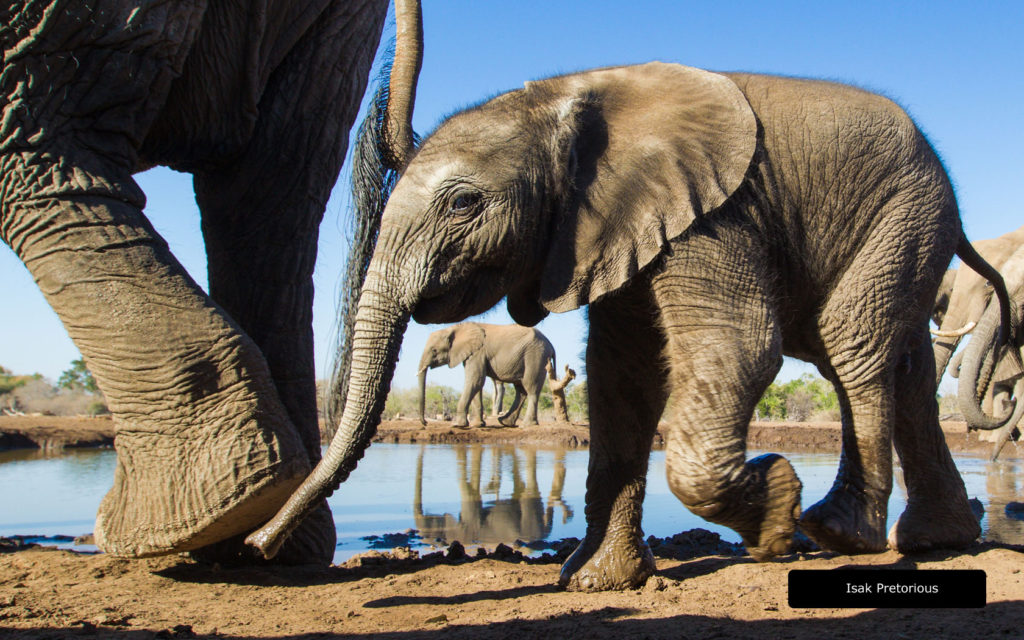
Yes, Mashatu Game Reserve is in the part of Botswana that juts out to share a border with Zimbabwe and South Africa – just like a little toe! Here you find 29 000 hectares of unfenced private land – not a concession but privately owned by three generations. Over decades, careful land management has resulted in regular sightings of leopard, lion, cheetah (14 new cubs were born in 2019 alone), brown hyena, bat-eared foxes, African wild cats and honey badgers. Kills are also often observed as the wide-open plains lend themselves especially to cheetahs’ and lions’ hunting styles. We agree with Mashatu’s claim that they, ‘sell goosebumps’ and their exciting predator action is enough to give you (never mind the poor antelope!) plenty of goosebumps!
Mashatu is home to at least 700 giraffe and the largest recorded herds of elephants on private land in the world – between 200 and 300 individuals have been seen moving together. Bird nerds should look out for unusual species like Meyer’s parrots and green parrots. When it comes to spotting these animals and birds, you’re in the safe hands of the Mashatu guides, who have – on average – 14 years of guiding experience each. The trackers sit at the back of the vehicles so they can interact with the guests in the back rows. Once they’ve got five years’ tracking experience under their belts, they can move upfront.
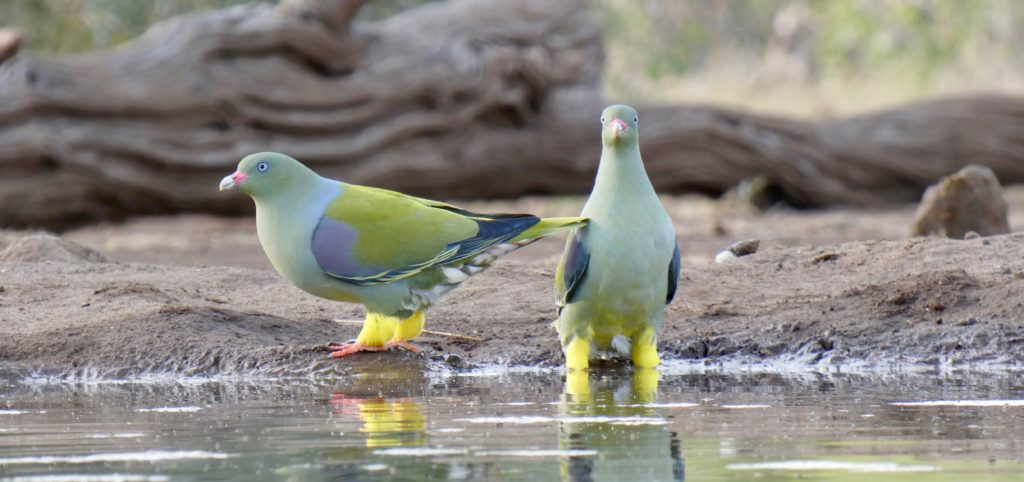
In addition to game drives, there are multiple other ways of seeing Mashatu. Cycling safaris are easy because they follow the flattened elephant tracks (there is an age restriction of 12 and a back-up vehicle follows at a distance of two kilometres). Intermediate riders (must be able to canter with confidence) can saddle up one of the over 40 horses on the property and walking is also available.
If guests don’t feel like breaking a sweat, they can watch plenty of game come down to the underground hide where a professional photo guide is available to help them make the most of their cameras and phones. Beanbags, tripods and mounts are all for guests’ complimentary use.
Before BTTE 2019 in Kasane, we had the opportunity to do a fam trip with agents to Mashatu, where we were hosted for two nights by Kelly Evans. This is easily a 4- to 5-night stay destination as there is so much to see and do here.
We loved being on safari in this secret corner of Botswana and recommend incorporating it into an itinerary for your clients for the following reasons:
Flight connections between Mashatu and the Okavango Delta are now easier than ever, with seat rates available to travellers. It’s now much more convenient and cost-effective to fly into the south of Botswana.
Botswana Immigration – if you’re flying in from Zimbabwe or South Africa – is done at Limpopo Valley Airfield, where you’ll be queuing with a maximum of 12 other people. Our group had the immigration counter all to themselves and were done in 15 minutes. Of course if you’re flying from the Delta, you skip this step.

The game viewing is phenomenal. We saw two cheetah kills in two days as well as mating lions, stalking leopards and plenty of plains game. Kelly still felt the need to apologise that it was ‘quieter than normal’!
The variety of activities and size of the area make it a natural fit for a longer, more relaxing stay. In two days, we did two game drives, a bicycle safari and a morning in the photo hide, and STILL didn’t have enough time to get to the area’s fascinating archaeological sites or the horse-riding excursion.

The photo hide isn’t just for professionals. Superb Mashatu photo host, Aubrey, showed our group how to make the most of their iPhones for photography and composition – and we learnt about settings we never knew existed.

With three properties on offer at different levels of budget, there’s a camp or lodge to suit everyone. Opt for Mashatu Tent Camp for entry-level accommodation, Mashatu Lodge for mid-range clients and Mashatu Euphorbia Villas (will open in May 2020) for those who want to splurge. The villas will have heated plunge pools, Wi-Fi and air conditioning plus views over the landscape.
There’s no ‘real’ Green Season here. You’ll find carpets of wild flowers from January to March but the grasses are still short and the rainfall is much less than in the rest of the country, making it a great option for small groups continuing to the Okavango Delta on private charter, or just doing Mashatu as a stand-alone.
The landscape and habitats are totally different to northern Botswana, lending a fantastic contrast to the Okavango Delta and Chobe National Park, both in terms of expected wildlife sightings and the landscapes to enjoy it all from.
If you want goosebumps and a huge thrill, Mashatu might be the place to find them!
Mashatu forms part of our 9-nights Best Kept Secrets Superior package – see how to link the Delta, Mashatu and the Victoria Falls for your clients here.
Should we tell you about Gonarezhou…?
… OR KEEP THE SECRET TO OURSELVES?
Imagine a place with trees so beautiful they make you ‘treedrunk’,
Imagine a place where around every corner a different antelope can be discovered,
Imagine a landscape diverse and exciting, from river beds and sandy beaches to open grasslands and forests,
Imagine majestic elephants wandering in front of the bright red sandstone of the Chilojo Cliffs,
Imagine a completely untouched wilderness,
Imagine a community that understands the importance of protecting their heritage, their environment and especially their trees (the people in the Mahenye village rather walk for kilometres to collect firewood than cut down the trees around them),
Imagine a man who understands that for the local population to care about protecting wildlife, they have to benefit from wildlife. Clive Stockil is this man; he is the founder of Chilo Safari Lodge. Clive has dedicated his life to solving human-wildlife conflict. He is the father of CAMPFIRE (Communal Areas Management Programme for Indigenous Resources). He explains it this way: “If you are a conservationist, your problem is all about space, so deal with human pressures first. CAMPFIRE has turned conflict into co-operation and everyone has benefited. The community is happy, the parks are happy and the animals are happy. Everyone wins.”
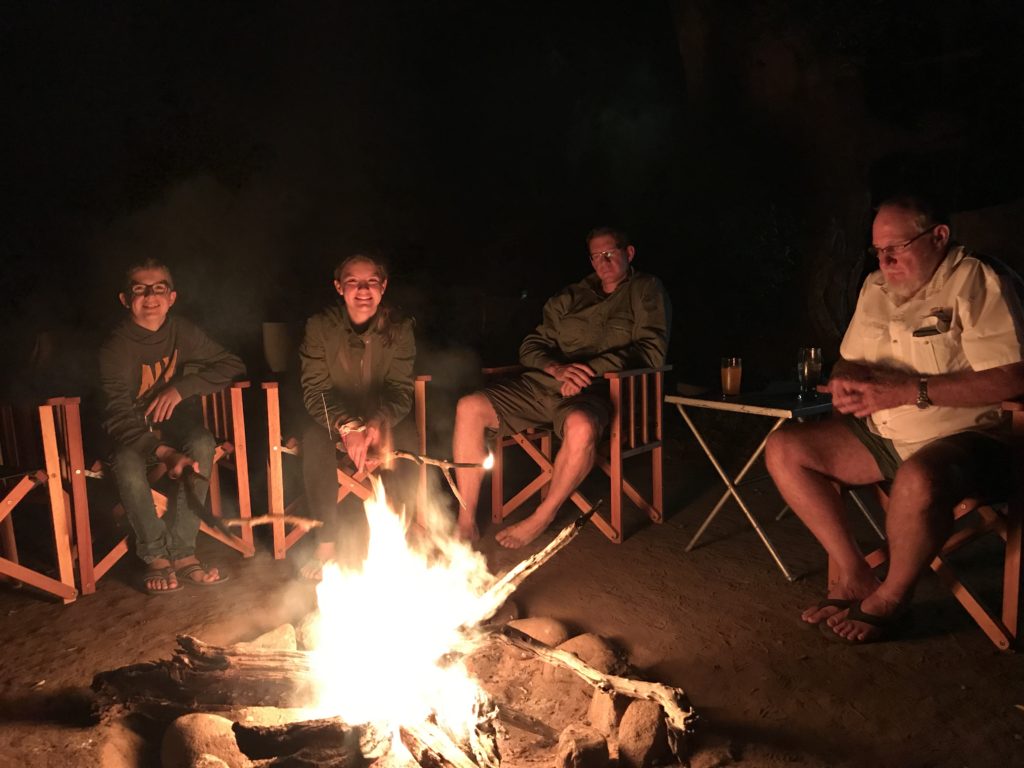
Gonarezhou means ‘The place of elephants’. There are special places in Africa where you truly feel at one with nature. Gonarezhou is one of them. I was blown away by the diversity of fauna and flora.
The remoteness of Gonarezhou is a mixed blessing. Access to Gonarezhou is easiest from Harare via small aircraft. The flight takes around 90 minutes and arrives in Mahenye, which is the closest airstrip to Chilo Gorge. Clients flying in from Johannesburg are recommended to fly with Federal Air into Buffalo Range (currently two weekly flights on Mondays and Thursdays); the road transfer from Buffalo Range to Chilo is about two hours long.
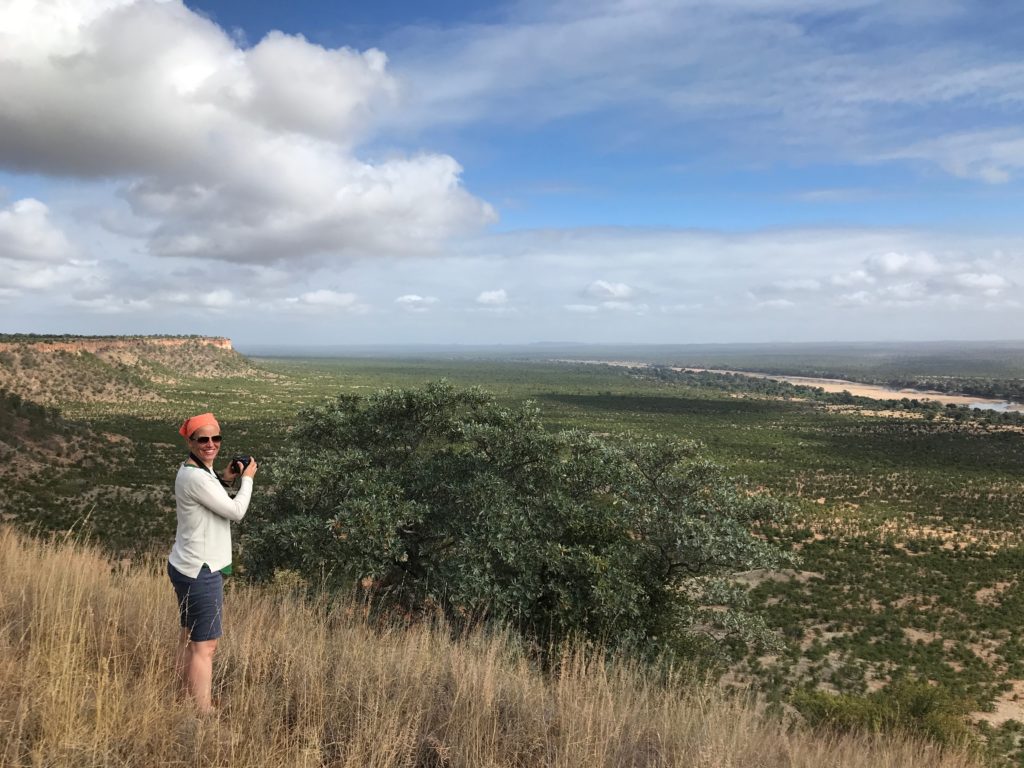
Gonarezhou is the place to be if you want to be ‘treedrunk’ after only an hour of safari, never mind the multitude of birds we saw, the incredible variety of antelope, buffalo, crocodiles and elephants. Just the trees alone are intoxicating…
Imagine every few hundred metres a beautiful baobab, thick, tangled riverine forests full of jackalberries, bizarrely bent rain trees, stoic leadwoods, ruffled African mangosteens… It’s almost too much to process!
2010 – 2019: A decade of change at Safari Destinations!
Think back to 2010… Nicholas Sarkozy was president of France, Barack Obama was the president of the US, Ian Khama ruled Botswana and Angela Merkel was chancellor of Germany (OK, some things change faster than others!). The best movie at the Oscars was The Hurt Locker (we had totally forgotten about that one) and the top songs were by Ke$ha, Train and Lady Antebellum (who, who and WHO?). There was no Instagram until October of that year, Nxai Pan and the Central Kalahari Game Reserve had no permanent camps, Natural Selection didn’t exist, and who would have thought that AirBnB or Uber would grow so quickly?
Things were very different then and no more so than at Safari Destinations. Our little company was just four years old. Our office was above Mack Air opposite the airport and we had about 15 staff, half of which are still with us today. 2010 was the year when Lorraine and I started searching for a new home for our business, which we found only a couple of kilometres down the road. We bought our new premises in 2011 and thought we would never need all the space – hahaha, were we wrong.

21st century technology
In those long-gone days, most of us still worked on large desktop computers and used the small but efficient Nokia 5300 mobile phone. The fax machine still played a key role (remember how the ink faded right at someone’s phone number?!).
Kay, reservations manager, recalls the prehistoric days before the IT revolution, ‘We used to do everything ourselves: no personal administrators or fancy systems.’
Karen, reservation supervisor, who was the sixth employee to join in June 2008, agrees. ‘When I started, we were quoting manually using Excel and we were also doing all clients’ documentation manually, too, which used to take hours. Now, we have a clever system that works out costs and pulls documentation like invoices, vouchers and confirmations.’
The longest-standing staff at Safari Destinations agree that the biggest change the decade has brought is the colossal change in technology.
‘It really has changed my job in a big way,’ says Angela, Travel Experiences manager. ‘We used to carry a huge manual file with more than 60 Operations Reports when going to the airport to meet clients and, believe me, it was HUGE… Every time you received a call from a supplier, agent or client, you would have to find a little corner in the terminal and flip through the file as fast as you could in order to retrieve information. Today that big black folder has been replaced by a single tablet.

The Travel Experiences team
Angela touched on another big change over the decade: the development of a specialized and highly skilled Travel Experiences team that handles all client meet & greets at Maun International, smoothing arrivals and departures, handling lost luggage, welcoming clients and everything in between.
The Travel Experience team in 2020 makes a big difference to a client’s overall experience and are very appreciated by the rest of Safari Destinations. Kay and Karen remember having to drop consulting in order to race over to the airport to meet their clients, then race back again. ‘Back then, each consultant had to go and meet their own clients. There was no such thing as a “Travel Experiences” team. I must admit, I’m very happy we do now have a Travel Experience team!’, laughs Karen.
People first
But no matter how sophisticated the technology became, Safari Destinations always put people first and the years between 2010 and 2020 saw some incredible projects for staff and the community.
As a mom of two girls herself, Karen appreciates Safari Destinations’ focus on boosting the next generation. ‘The support the company offers parents who have children is one of my biggest highlights of the past decade. Allowing our children to physically be on the office premises in a cottage (known as the Kiddies’ House), being supervised, whilst we can work is a massive benefit.’ This development was ahead of its time in Maun (and actually the rest of the world) and support for working parents is a growing and welcome global trend into 2020.

‘One of the biggest projects,’ says Lorraine, ‘is the vision to build a school and after-care facility for the Bana Ba Letsatsi (BBL) underprivileged children, a dream come true and a testament to the meaningful contribution Safari Destinations and our partners have made through tourism. The long-awaited building will be started in 2020.’
Other notable community-engagement projects include the start of the ‘Magic Bus’. This is a mini-bus that is sponsored by Safari Destinations and gives transport to especially the elderly of Maun, who may otherwise have to walk long distances to attend a clinic or go shopping.

To celebrate Botswana’s 50 years of independence in 2016, staff took part in the ‘500 Man Hours’ project that encouraged them to collectively give 500 hours of time to community projects. Today, Safari Destinations works closely with the Maun Animal Welfare Society (MAWS), Women Against Rape (WAR), Bana Ba Letsatsi (BBL) and many others. Many in the industry are also aware of SD’s work with Sekgoma Primary School, the bed night bank, Travel for Impact and various drives for donations of winter clothes, blankets and foodstuffs.
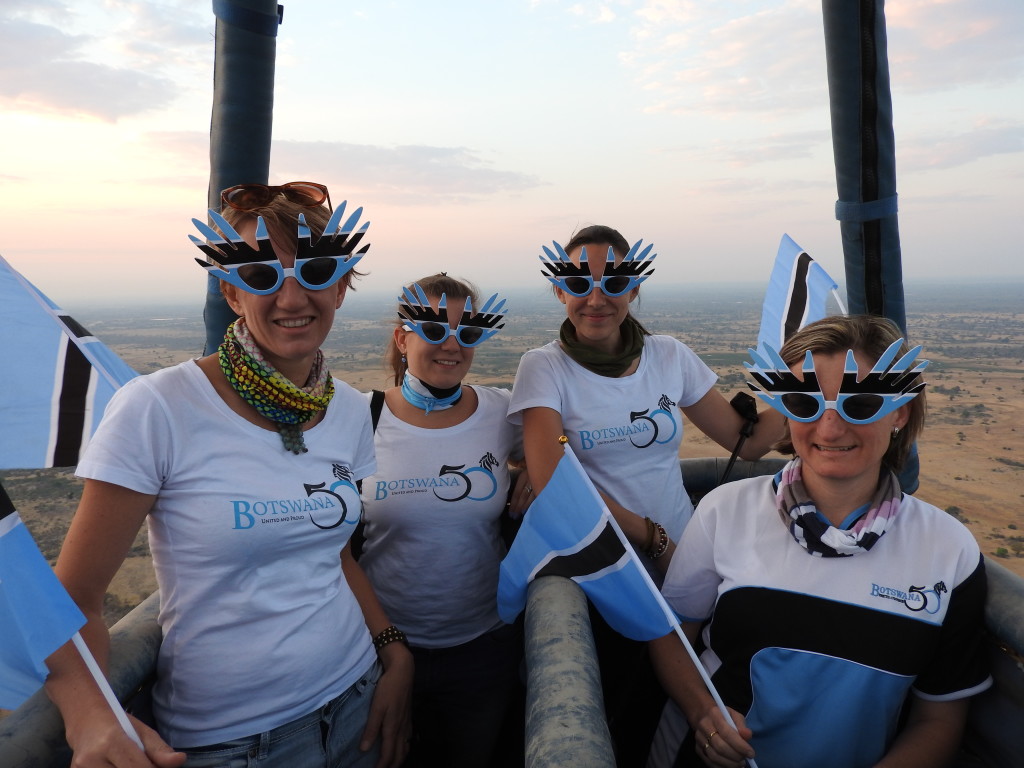
‘People’ also refers to how Safari Destinations finally started employing the so-called ‘stronger sex’ (ha! Us ladies change tyres, set up tents, dig game-drive vehicles out of sand AND give birth!). ‘The number of men employed is also a big change. In 2008, when I joined, employing men was not in the pipeline; however, once more women joined the company, there was a definite need for some male company!’, jokes Karen.

A maturing industry
As Safari Destinations grew from a toddler to a teenager over the decade, the broader safari industry also matured radically. Everyone agrees that far more players have entered the market, bringing fresh ideas and new people, and making every supplier raise their game to stay competitive. Often this had meant a new level of luxury: wine cellars, Wi-Fi, media rooms, gin bars, specialist spa treatments and à la carte dining were all virtually unknown in 2010.
As Angela says, ‘Suppliers have had to keep up with trending luxury décor in order to stay relevant while not destroying the authenticity of the camps or environment.’ ‘Yes,’ says Karen, ‘More properties are popping up, which means new players as well. The upgrading or rebuilding of a lot of properties to a very high-end level means some products are far more luxurious now than ever before.’
And keeping up with times means the decade also saw huge shifts in how it uses technology.
‘Smart-phone technology and websites being a go-to place for people to do research has been a big change. There is so much more access to information now,’ adds Karen.
‘Social media is a plus. It makes it so much easier for all concerned to get the message out there and also for clients to dream up and plan exotic holidays. Wildlife documentaries, viewed across the world, are also a plus but trying to get an 8-10-day trip to compare with a documentary that is five years in the making, is sometimes challenging, to say the least! Luckily, we rise to the challenge!’, laughs Kay.
‘The rise of social media over the past decade has changed many things,’ agrees Andrea. ‘In some ways, thanks to smart phones and social media, travel is less about the experience of being in moment now and more about what you can post to Instagram later… Every camp now needs a few corners that are highly Instagrammable. It’s the same with some sightings: if the light is low or branches are in the way, then there’s no point in stopping for a photo for some guests. Some clients want the exact experience they’ve seen on Instagram – unfortunately, the elephants aren’t trained to drink from the same swimming pool at the same time every single day!,’ she jokes.
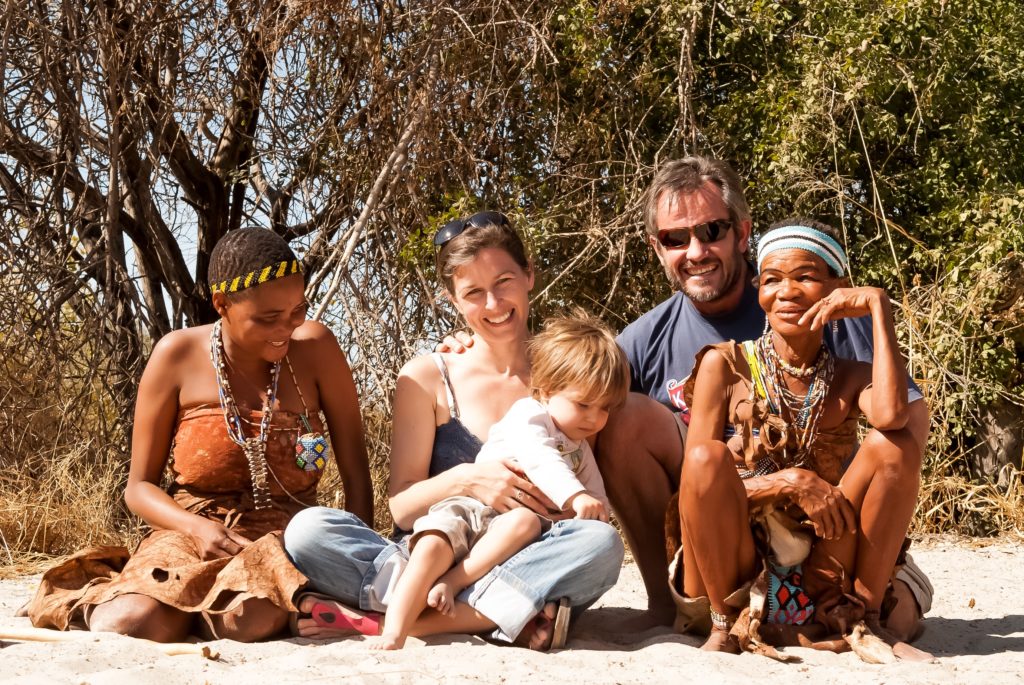
‘Social media also allows for a lot of information, which is a good thing as Karen says, but sometimes that information is put out by amateurs who get things wrong. TripAdvisor is now a staple source of information for clients that they trust without knowing the full story of a stranger’s holiday – a good camp may get a bad review for something beyond their control. As professional consultants and experienced experts, knowing what product would suit which clients is a skill that cannot be replaced by a single TripAdvisor post.
As Kay says, ‘with more and more beautiful videos and photographs appearing online every day, we need to remember that they represent just one moment of a safari. A photographer chooses a single perfect image from a whole journey. For us, the fun and excitement remains in finding sightings, having great guides, smelling the wild sage, hearing the bulbuls call to each other and seeing remarkable landscapes – not in reducing it all to a few pixels on a screen.’

A decade of good laughs
While it’s never easy to grow a business from strength to strength, it is certainly made a lot easier if everyone has a good sense of humour. The Safari Destinations employees who’ve been around since 2010 and before have shared plenty of jokes and funny anecdotes over the years.
Kay groans at some of the crazy requests… ‘We’ve been asked to provide a double room with a sea view at the Victoria Falls Hotel! Once a client was disappointed because they couldn’t take a mokoro from Nxamaseri to Tsodilo Hills to see rhino!’ ‘Oh, that’s nothing,’ says Karen with a straight face. ‘I was once asked if the clients would be able to see unicorns on safari…’
Travel is a big and often stressful part of our jobs as we have to see as many properties as possible, make extensive notes, take photos (and videos now with our phones – unthought of in 2010!) and remember countless names, numbers and facts. But even educational travel has it’s funny side: Lorraine and I were once hosted at Baines’ Camp by Sanctuary Retreats.
‘They ran us a romantic bubble-bath following the afternoon activity that we had no choice but to use. So, we had fun taking a picture of the two of us fully dressed in the bath!’

We’re all looking forward to seeing what advancements, achievements, jokes and memories the next ten years will bring us!
